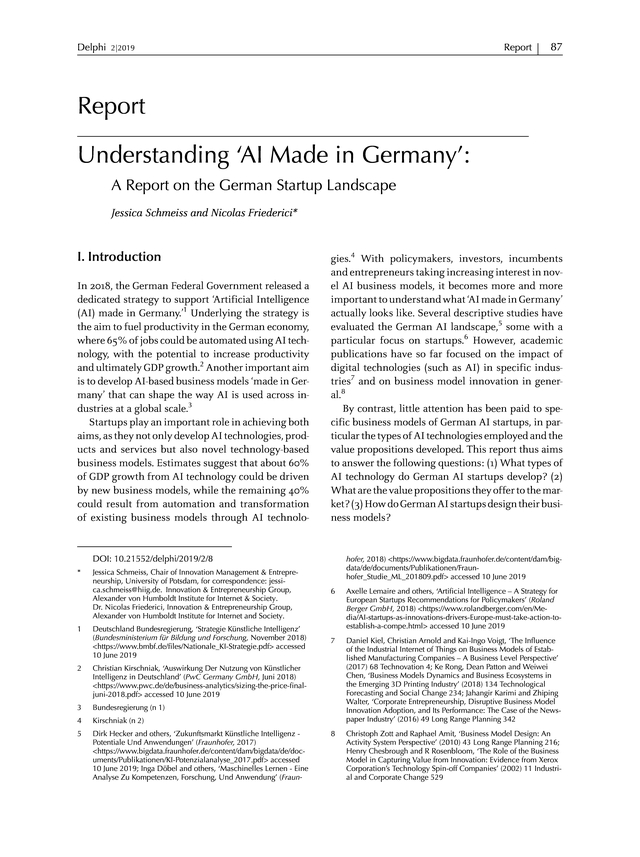The report investigates what is needed to drive the development of AI in Germany and critically examines the German government’s ‘AI made in Germany’ agenda, which aims to make Germany a world leader in the development of AI. What makes the contribution particularly relevant is its concreteness. The study found that there are three different areas in which Germany could become a leader in the development of AI. Firstly, it could contribute in developing AI-based technology for other firms, which created the demand for it in the first place. Secondly, startups could develop AI technology for automating tasks that are currently performed manually. Finally, AI could function as a solution providers. That is to say that it could that provide entirely new solutions and create new products and demands. According to Schmeiss and Friederici, this field holds the most potential and should therefore receive the lion’s share of available funding.



